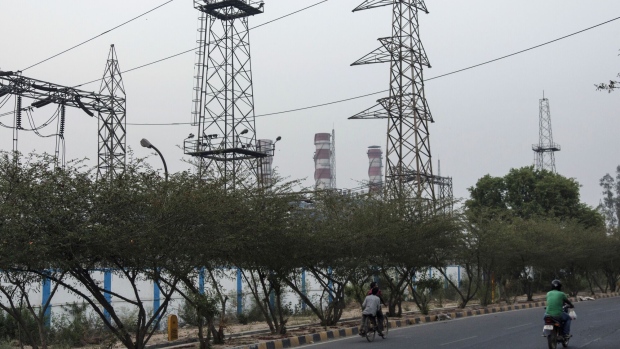Mar 10, 2023
India’s Efforts to Avoid a Power Crisis Set to Boost LNG Imports
, Bloomberg News

(Bloomberg) -- India will boost fuel imports after gas-fired power stations were asked to increase output to meet soaring demand during the summer months.
Gail India Ltd. will tap the seaborne market to supply state-run power producer NTPC Ltd., which has been asked by the government to run 5 gigawatts of plants to meet peak demand during April and May, according to people familiar with the matter, who asked not to be named as the details are private.
New Delhi-based NTPC estimates it will require 250 million metric standard cubic meters of the fuel during the two-month period, according to some of the people. An additional 4 gigawatts of capacity run by other companies will also be kept ready to operate if needed.
NTPC and a Gail spokesman didn’t immediately reply to emails seeking a comment.
India’s government is taking action as harsher-than-expected weather threatens to create a surge in electricity demand. An early onset of hot weather has already pushed power demand to near-record levels, stoking fears of a repeat of the intense heat wave last year.
India has already invoked an emergency rule forcing some plants running on imported coal to run at capacity.
Nearly 25 gigawatts of India’s gas-fired capacity has been lying underutilized for years, as the electricity is too costly for the competitive market dominated by coal. Bringing these units back shows the extent of the challenge, as the nation is forced to ditch concerns over high prices to meet supply shortfalls.
Indian Energy Exchange, the nation’s biggest trading platform, has opened a new window that will allow trade of high-cost electricity produced from gas, imported coal and batteries.
NTPC will procure the gas from state-run peer Gail through a long-term purchase contract, the people said. Gail will likely tap the spot LNG markets for meeting NTPC’s demand, one of the people said.
India relies on imports for nearly half its gas needs, with fertilizer, transport and industries being the biggest users of the fuel. The nation’s LNG imports declined 14% from a year earlier during the 10 months ended in January due to high prices.
Now, with prices softening in the spot market and increased demand from power stations, imports are likely to rise, according to Rajesh Mediratta, chief executive officer at Indian Gas Exchange.
©2023 Bloomberg L.P.






